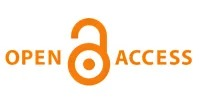Blockchain for Secure Patient Data Management
DOI:
https://doi.org/10.65579/sijri.2025.v1i1.05Keywords:
Blockchain, Patient Data Security, Electronic Health Records (EHRs), Healthcare Interoperability, Smart Contracts, Data PrivacyAbstract
Hyper-digitization of healthcare has led to increased patient data generated, transferred and stored in hospitals, laboratories, insurance companies and in mobile health. Although the electronic health records (EHRs) have the potential to enhance efficiency and enhance delivery of care, they are prone to breaches, unauthorized access and manipulations of data. Conventional centralized storage systems might also fail to deliver different degrees of transparency, interoperability, and trust to the stakeholders. A concept of a radical solution to secure the patient data management is shared in this term paper which is blockchain technology. The blockchain with its cryptography hash based consensus and decentralized structure may appear immutable and auditable and resistant to a point of failure. The blockchain can support patient-centered models where the patients own their records, and certain examples of selective disclosure to care providers or even insurers through implementation of smart contracts to control access. Such processes can minimize the occurrence of duplicate tests, improve continuity of care and trust multi-institutional partnerships. The balancing of interoperability concerns and the discussed permissioned blockchain models also up-to-date the paper which balances the security demands and regulatory demands like the HIPAA and GDPR. The conceptual model in the proposal includes the integration of blockchain into the currently in use health information systems and with the help of encryption, off-chain storage and identity management layer. Among the possible advantages are greater data integrity, responsibility and lower cost of administration. The practical bottlenecks are also however identified in the paper as scalability, high costs of energy in certain type of blockchain and failure of change in technology in healthcare settings. Comprehensively, the discussion shows that blockchain is an emerging potential to guarantee sensitive patient data security and enhance the interoperability and patient empowerment. The next directions will be hybrid systems that will integrate blockchain and cloud computing with artificial intelligence and make them efficient, compliant, and trustful to digital health ecosystems.












